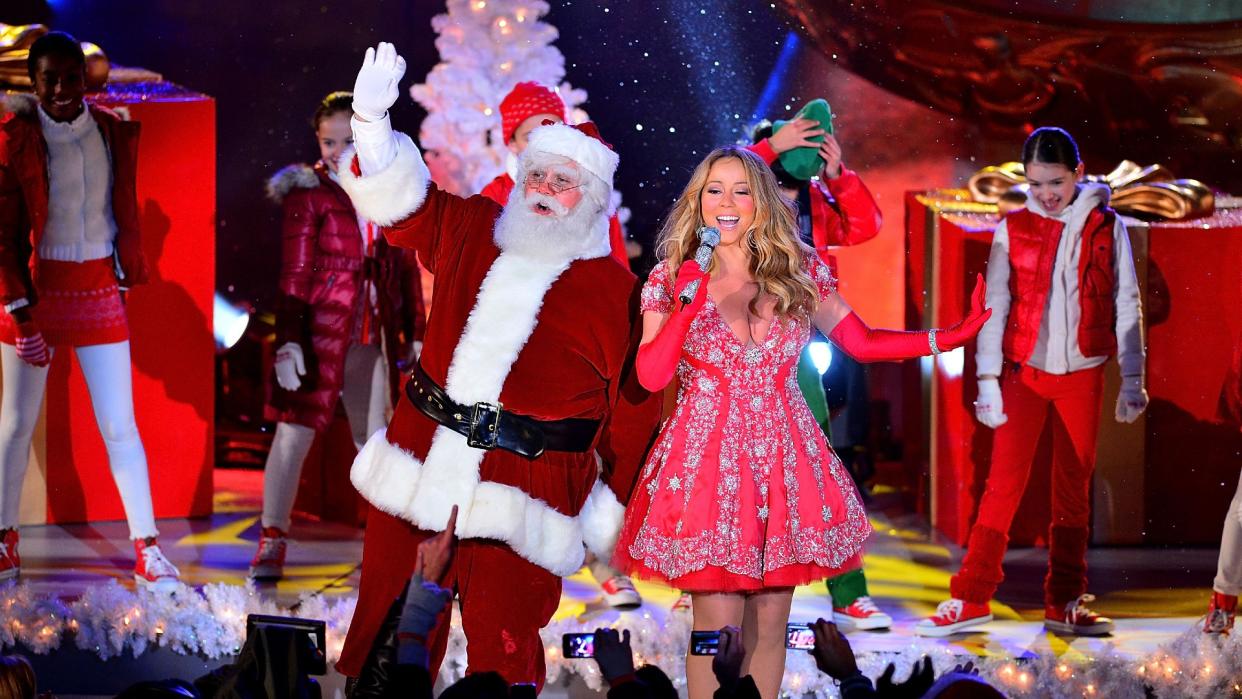Christmas songs: where are the new hits?

If you're tired of hearing the same old Christmas songs ever year, blame the internet, the music industry and your parents.
The likes of Mariah Carey's "All I want for Christmas is You", The Pogue's "Fairytale of New York" and "Last Christmas" by Wham! "all have one thing in common" besides ruling the "festive airwaves", said Ed Power on the i news site. "They’re ancient."
All date from before the mid-1990s, while another Christmas stalwart, Slade's "Merry Xmas Everybody", is 50 years old this year. "There's no getting around it," wrote Power. We've "given up" on "fresh-from-the-oven" festive tunes.
'Hardly anything new'
Looking down a recently published list of the biggest Christmas songs released so far in the 21st century, Metro's entertainment reporter Robert Oliver found it "alarming to note just how many of the highest entries were covers or uninspired reimaginings of traditional Christmas classics".
From Michael Buble’s "nauseating Rat Pack renditions" and Lily Allen's take on a Keane song, to Kylie Minogue "wrapping herself around Santa Baby", he added, "there’s hardly anything new". And of the original songs released by major artists including Katy Perry, Gwen Stefani and John Legend, "precious few have stuck around".
According to research on regional UK radio stations published earlier this month by the Performing Rights Society for Music, the most recent song to break into the top 20 of most-played Christmas tracks is Cliff Richard's "The Millennium Prayer", released in 2000.
A similar trend is playing out in the US, yet there also is a stark divide in Christmas listening habits across the Anglosphere. The divergence, said The Telegraph's music critic James Hall, "is best illustrated by comparing and contrasting recent lists of the ten most-streamed Christmas songs in the US and the UK".
When universal evergreens such as "All I Want For Christmas Is You" (released in 1994) and "Last Christmas" (1986) are removed from both lists, the UK's favourite songs "lean towards the raucous and the novelty", such as "Fairytale of New York" (1988) by The Pogues and "I Wish It Could Be Christmas Everyday" (1973) by Wizzard. By contrast, the US favourites "lean towards the traditional, the serious and the schmaltzy", such as "Jingle Bell Rock" (1957) by Bobby Helms and "The Christmas Song" by Nat King Cole (1946).
"Where we're bawdy and poppy, they're gaudy and soppy," Hall added.
"The irony is striking," said Power on i news. "We live in an era obsessed with the shiny and new", yet "25 December has become a heritage industry, where it's all about looking backwards".
'Nostalgia is a powerful force'
The Christmas No.1 "used to be an event", aid The Guardian's Barbara Ellen. "A crowning end-of-year achievement. A cultural moment."
But "various factors (not least the inexorable rise of streaming coupled with the splintering of the music industry)" have fuelled the "downward slide" of the festive hit, and "the diminishment of kudos, the dearth of public excitement and anticipation, has become cruelly obvious".
Another reason for the lack of new festive hits since the mid-1990s "is that there isn't really the same baseline mass culture today that there was back then", Ian Holliday and Jam Edwards, hosts of the "Hark!" Christmas song podcast, told the i site's Power.
Paul Carr, professor in popular music analysis at the University of South Wales, argues that there is also a generation effect that favours songs from the 1970s and 1980s. "We pass these records on to our kids, we listen to them, and consequently these records seem to be having this cyclic impact on generations," he told Wired.
Nostalgia is a "powerful force in popular culture, particularly around Christmas", said the tech site – just look at "White Christmas" (1942) by Bing Crosby, which is the best-selling song of all time.
Whatever the reasons, the lack of new festive hits is lamented by Metro's Oliver. Pop music "is supposed to be about new things" and "a reflection of the changing landscape of popular culture", which is "why it's such a shame that at Christmas, we tend to hear the same songs".
Perhaps a revamp of how the Official Charts Company counts sales in the age of streaming is required, Oliver suggested, or perhaps today's top stars "need to be bolder" with their potential festive releases.
"But something has to change," he added, "otherwise it will always be Last Christmas roast on the 25th with copious amounts of Mariah for pudding, then plain Wham sandwiches until New Year’s Day."

